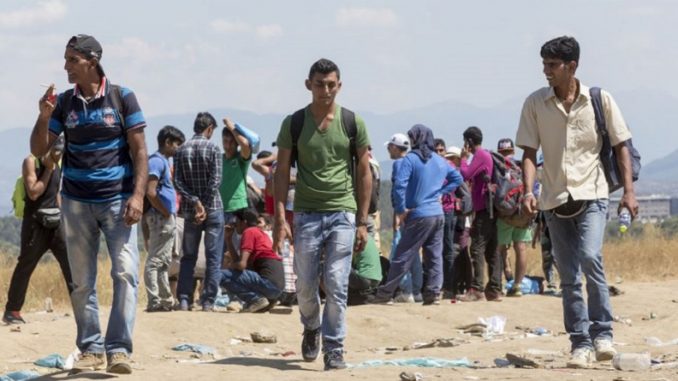
Molly Hennessy-Fiske, Los Angeles Times, January 1, 2019
{snip}
Most people trying to sneak into the country still use long-established routes in Texas’ Rio Grande Valley. But recently released government figures show a growing number of families crossing along the 268-mile stretch of border known as the El Paso Sector, which includes western Texas and all of New Mexico.
In November, the U.S. Border Patrol in that sector caught 11,617 people traveling in families — nearly 20 times the total during November 2017 and just over a fifth of all migrants apprehended on the southern border. The majority of those families were from Guatemala.
{snip}
From Dec. 22 to Dec. 30 along the entire border with Mexico, the Border Patrol has referred 451 migrants — including 259 children, about half of them under age 5 — to medical providers.
“Many were ill before they departed their homes,” McAleenan said, citing cases of flu, pneumonia, tuberculosis and parasites.
{snip}
Teams from the U.S. Coast Guard and Centers for Disease Control and Prevention were sent to the border this week to assist in medical screenings and recommend measures to limit illnesses in Border Patrol holding areas in El Paso.
Immigrant rights advocates blamed the new, more dangerous crossing patterns largely on stepped-up enforcement in more frequently traveled areas and efforts by the Trump administration to discourage people from entering at official border crossings to seek asylum.
“When you start interfering with a migration pattern, you better be prepared to deal with the consequences,” said Ruben Garcia, director of Annunciation House, which has been sheltering migrants in El Paso and coordinating shelters in New Mexico.
{snip}
The bus ride from Guatemala takes just a few days, leaving migrants feeling fresh for the trek through the desert and “providing greater confidence for parents to bring younger children,” he said.
{snip}
And more migrants are traveling with children because smugglers are telling them families have a better chance of receiving asylum, Correa-Cabrera said: “They are promising the families if you bring the children with you, you have a ticket to the United States.”
{snip}